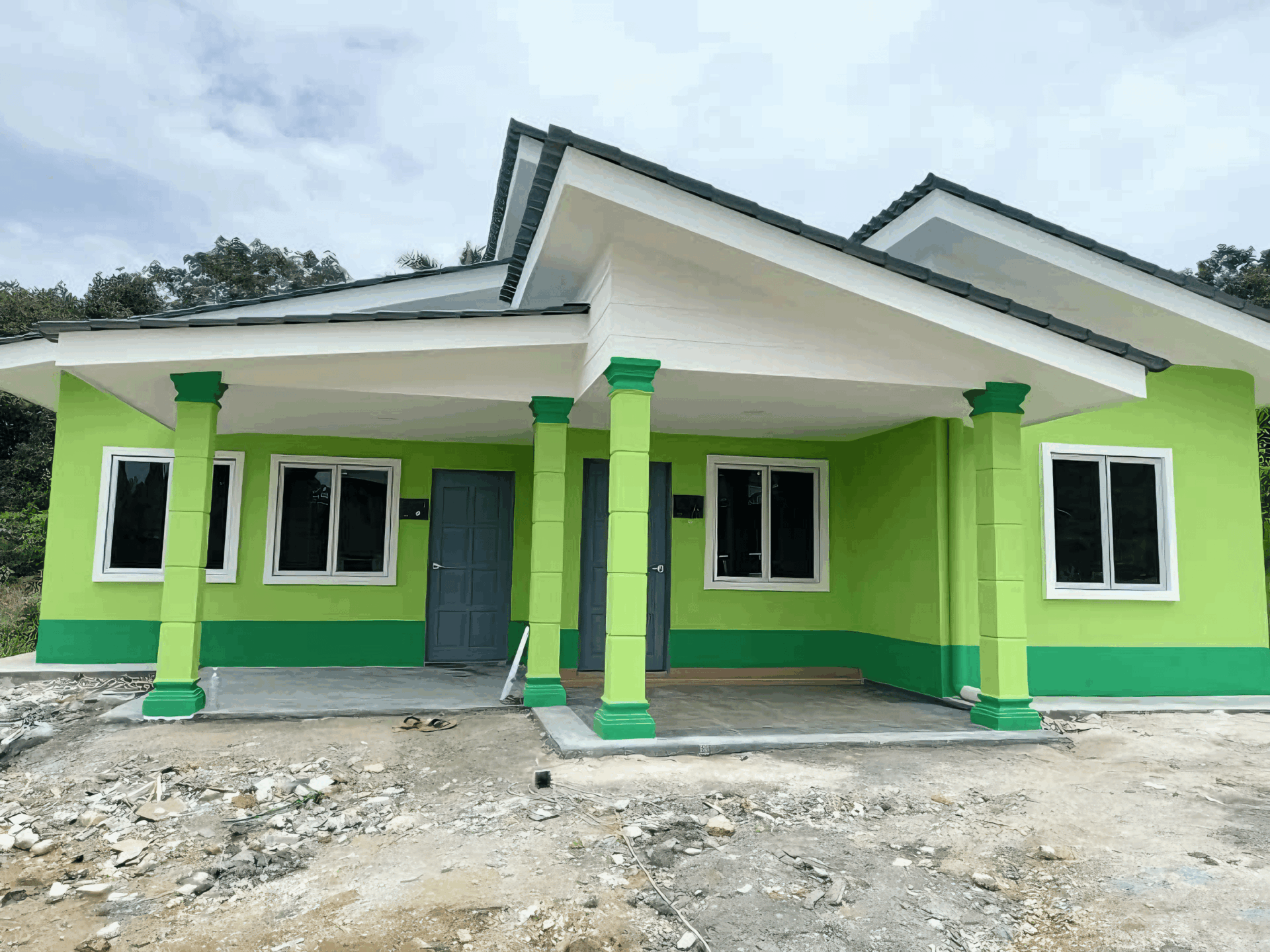Why Getting Council Approval is a Must Before Starting Your Home Construction | RumahHQ

Thinking about building your dream home? Exciting times ahead! But before you dive into the world of construction, there’s a little detour you need to take. Yup, you guessed it – we’re talking about getting council approval. Now, you might wonder, “Is it really that important?” Well, let’s just say, skipping this step could turn your dream project into a nightmare. Navigating through the ins and outs of local regulations can sound tedious, but trust us, it’s totally worth it in the long run. In this article, we’ll explore why council approval isn’t just a box-ticking exercise, but rather a crucial foundation for your home-building journey in Malaysia. So, grab a cup of kopi, sit tight, and let’s dig into the nitty-gritty!
Understanding the Importance of Council Approval in Home Construction
When diving into the world of home construction, understanding the role of council approval is paramount. Not only does it adhere to local laws, but it also ensures that your vision aligns with community standards and safety requirements. By obtaining the necessary permits, you safeguard yourself against potential legal issues down the road, which may arise from non-compliance with zoning laws or construction regulations.
Another important aspect is the sustainability and environmental impact of your project. Council approval often involves an assessment of how your construction may affect the local ecosystem. Compliance with these regulations ensures that you minimize harm to the environment and utilize local resources efficiently. Plus, showing that you’re committed to sustainable practices can also enhance your relationship with the community and even boost your property’s long-term value.
To better illustrate the advantages of seeking council approval before starting your construction, consider the following key points:
| Benefits | Details |
|---|---|
| Legal Protection | Prevents costly fines and legal disputes. |
| Enhanced Property Value | Approved designs tend to attract buyers and investors. |
| Community Support | Shows consideration for local guidelines and neighborhood values. |
Ultimately, securing council approval is about more than just ticking boxes on a list. It embodies a commitment to doing things the right way, ensuring your dream home is not only beautiful and functional but also a responsible addition to the community in which you live. It’s all about making informed choices that will benefit both you and your neighbors in the long run.

Navigating Local Regulations and Zoning Laws Effectively
Understanding the local regulations and zoning laws in your area is crucial before embarking on your home construction journey. Each locality comes with its own set of rules, and navigating these can feel like walking through a maze. It’s vital to familiarize yourself with the specific regulations that might impact your project, including building heights, property lines, and allowable materials. Ignoring these can lead to costly mistakes or even legal complications down the line, so be proactive in your research.
When seeking council approval, it’s important to compile all necessary documentation. Be prepared with a clear and concise project proposal, which should showcase your design, site plans, and the materials you intend to use. Here are some key documents you might need:
- Site plans outlining your construction zone
- Architectural drawings of your proposed home
- Environmental impact assessments (if applicable)
Additionally, engage with your local council early on. Many councils offer workshops or informational sessions designed to help homeowners understand the approval process better. This kind of proactive relationship can be beneficial when you encounter challenges or need to clarify regulations. Consider creating a table or checklist to track your progress through the approval process:
| Task | Status | Notes |
|---|---|---|
| Research zoning laws | ✔️ Completed | Reviewed local council website |
| Compile project proposal | 🕓 In Progress | Gathering necessary documents |
| Submit application | ❌ Not Started | To be done by [insert date] |

Avoiding Costly Delays: The Role of Council Approval in Timelines
When embarking on a home construction journey, many homeowners underestimate the importance of securing council approval. However, taking the time to navigate through this process can save you from unforeseen delays and expenses. Buildings that don’t comply with local regulations can face serious setbacks, including stop-work orders and hefty fines. Ignoring council requirements can lead to significant revisions in your plans, pushing your completion dates further out.
To streamline the approval process, being well-prepared is key. Ensure that your submission includes comprehensive architectural plans, site assessments, and all necessary documentation. Additionally, staying informed about your local council’s specific guidelines can make a world of difference. Here’s a quick checklist for your council submission:
- Architectural Drawings
- Site Plans
- Environmental Impact Assessments
- Proof of Ownership
- Any Previous Council Correspondence
Beyond just paperwork, maintaining open channels of communication with local council representatives can help you navigate potential roadblocks. If any issues arise during the approval process, having a good relationship can often lead to more effective solutions. Here’s a quick set of potential risks of not securing council approval:
| Risk | Potential Consequence |
|---|---|
| Stop-Work Orders | Project Halt |
| Fines | Unexpected Costs |
| Modification Requirements | Design Changes |

The Risks of Ignoring Council Approval: Legal and Financial Implications
Embarking on a home construction project without securing council approval can lead to significant legal headaches. If you choose to ignore the regulations set out by your local council, you may find yourself facing penalties and fines. These fines can escalate quickly, leading to a serious financial burden that could have easily been avoided by simply following the correct procedures. Moreover, in some cases, your unapproved construction could be deemed illegal, compelling you to halt all work until you come into compliance, which might incur further costs.
Beyond legal fines, the financial implications can multiply when you consider the potential costs of demolishing or modifying structures that weren’t built in accordance with local guidelines. Imagine investing your hard-earned money into a project, only to discover that you have to tear it down because it doesn’t meet the council’s standards. This scenario is all too common and serves as a stark reminder of the importance of obtaining approval beforehand. You may end up spending much more than what you initially budgeted for if you don’t prioritize getting the green light.
Furthermore, ignoring council approval can impact your property’s resale value. When it comes time to sell your home, potential buyers will likely ask for documentation proving that all building work was carried out legally. If you lack appropriate approvals, you might face issues with lenders and potential buyers. Additional repairs and modifications may be necessary to bring your home up to code, further depleting your resources. Not only does this create a stressful situation, but it can also hold back your investment from thriving in the real estate market.

Building your dream home is an exciting journey, and one of the most important steps in this process is securing council approval. By adhering to local council guidelines, you not only align your project with community standards but also demonstrate respect for the neighborhood. This proactive approach helps to cultivate trust and good relations with residents and local authorities, ultimately fostering a sense of community spirit.
When you engage with the council and follow their designated processes, you contribute to a more organized and harmonious environment. It shows your commitment to safety and aesthetics, as well as your willingness to resolve any potential issues before they arise. Some key points to consider are:
- Building Codes: Compliance ensures that your home is safe and built to last.
- Environmental Impact: Respecting local wildlife and vegetation enhances community appeal.
- Neighborhood Character: Keeping with the architectural style helps maintain a cohesive look.
Notably, having the council’s stamp of approval serves as a safety net. It mitigates the risk of future disputes with neighbors or disputes over property lines. It can also improve property values in the long run. Below is a simple comparison of the outcomes when building with or without council approval:
| With Council Approval | Without Council Approval |
|---|---|
| Enhanced community relations | Potential disputes with neighbors |
| Compliance with safety standards | Risk of structural issues |
| Increased property value | Decreased interest from buyers |

Improving Property Value by Adhering to Approved Plans
When homeowners stick to approved plans for their construction projects, it often translates into higher property values. This is because adherence to approved designs ensures that the construction complies with local regulations, which helps maintain the overall aesthetic and safety of the neighborhood. When the property aligns with community standards, it not only attracts potential buyers but also reassures them that they are investing in a quality environment. In essence, a well-planned home can stand out in the market and can potentially garner offers that exceed initial expectations.
Moreover, properties built according to approved plans tend to suffer fewer legal and financial repercussions. Homeowners who deviate from these plans risk facing fines, having to redesign or demolish non-approved additions, and even losing property value. Compliance with regulations creates a sense of trust between buyers and sellers—knowing everything was done by the book gives buyers peace of mind. Plus, banks and financial institutions are more likely to offer favorable loan conditions for homes that have been constructed legally.
sticking to the approved plans can enhance the overall marketability of the property. When it’s time to sell, having all your documentation in order can streamline the selling process. Buyers are generally more inclined to invest in homes with verified permits and blueprints. In scenarios where potential buyers are weighing multiple options, a home with a clear compliance record will rise above others in consideration. This leads to faster sales and can even improve negotiation power on the asking price.

Step-by-Step Guide to Securing Council Approval for Your Project
Securing council approval can be a bit of a maze, but breaking it down step-by-step makes it manageable. Start by doing your homework—research local regulations and zoning laws that affect your project. This includes understanding what is permissible in your area, such as construction height restrictions and setbacks. Create a checklist of needed documentation, like site plans, building plans, and environmental assessments, to ensure you don’t miss anything important. Collecting all the necessary info upfront will save you time later.
Once you have your documentation ready, it’s time to engage with the council. Schedule a pre-application meeting with council officers where you can present your project and get invaluable feedback. This is also a golden opportunity to ask about potential issues and address them before submitting your formal application. Prepare a comprehensive project proposal that outlines your objectives, design considerations, and the community benefits of your project. Remember that councils appreciate clarity and thoroughness!
After submitting your application, be prepared for communication. Regularly check the status of your application and respond promptly to any requests for additional information. You might find it useful to organize your feedback and correspondence in a simple table:
| Communication Type | Date | Status |
|---|---|---|
| Initial Submission | 01/05/2023 | Submitted |
| Request for Additional Info | 15/05/2023 | Pending |
| Approval Notice | 30/05/2023 | Awaiting |
Following this guide step-by-step will not only streamline the process but also strengthen your chances of securing that all-important council approval.

Choosing the Right Professionals: Architects and Planners in the Approval Process
Embarking on the journey of home construction can be both thrilling and daunting, but with the right professionals by your side, the process can become significantly smoother. When it comes to securing council approval, hiring skilled architects and planners is essential. These experts understand the intricacies of local regulations and can help you navigate the complexities of approval processes. They’ll ensure that your design is not only innovative but also compliant with zoning laws and building codes, which can save you from potential headaches down the road.
When selecting the right architects and planners, consider the following factors:
- Experience: Look for professionals with a proven track record in residential projects.
- Local Knowledge: Opt for those who are familiar with your local council’s requirements.
- Portfolio: Review their past work to ensure their style aligns with your vision.
- Communication: Choose someone who listens to your ideas and communicates clearly about the process.
To streamline the approval process, collaborating with a well-rounded team is beneficial. Consider creating a table to map out their roles:
| Professional | Role |
|---|---|
| Architect | Designs your home while ensuring compliance. |
| Urban Planner | Navigates zoning laws and local policies. |
| Surveyor | Conducts land surveys to confirm boundaries. |
| Engineer | Ensures structural integrity and safety. |
By assembling a knowledgeable team of these professionals, you’ll enhance your chance of a smooth council approval process, paving the way for your dream home to become a reality.
Key Takeaways
In closing, getting council approval before diving into your home construction is not just a box-checking exercise. It’s like giving your dream build a solid foundation—one that keeps you safe, saves you from future headaches, and lays down the law for what can and can’t be done. It might seem like an extra step that delays your excitement, but trust us, it’s a small price to pay for peace of mind. After all, you wouldn’t want to build a stunning home only to find out you’ve broken some regulations later on, right? So, before you grab that hammer and nails, take a moment to get the right permissions and make your home-building journey a smooth one. A little patience now can keep your construction experience easy and enjoyable! Happy building!











